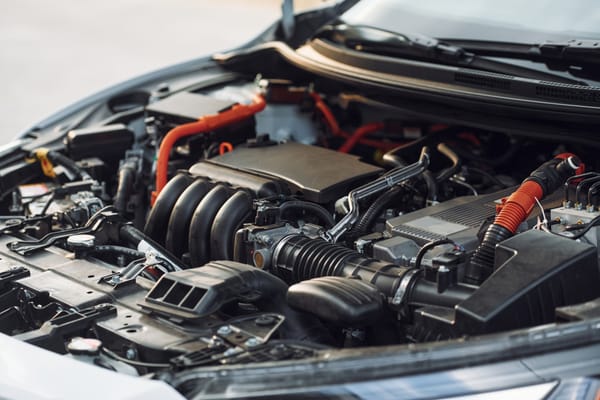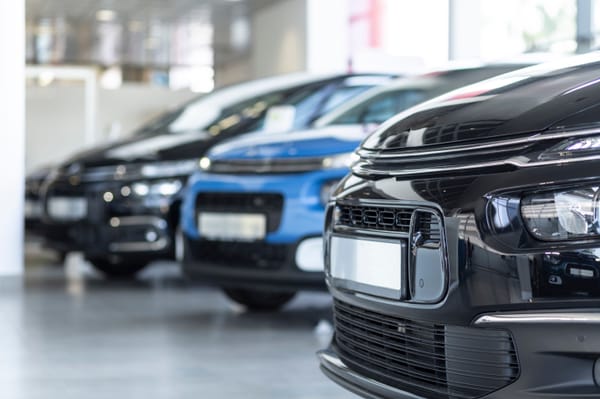How to Know What Your Car Is Really Worth (Before You Sell It)

The most satisfying thing when selling a car is knowing that you got value for money.
And when you put in the good work: polish it, service it, and get the paperwork sorted, you're usually on your way to getting good money for that Toyota Probox.
But what then makes people call you with offers like: "Boss, chukua Ksh 900,000…. cash" when you clearly indicated that you were selling it for Ksh. 1.4M?
Many Kenyan sellers go through this. We either price too high and hear crickets, or price too low in a panic and lose a ton of money.
It’s pure guesswork. We rely on story za mtaani or what a friend of your cousin's friend sold theirs for last year.
This guesswork is costing you serious cash. As your big brother in Kenya's used car market, Peach Cars is here to help you fix that today.
Here goes…🙂
What Does "True Car Value" Even Mean?
Before you can set a price, you need to know what "value" you’re looking for. Most sellers confuse two very different things.
Market vs. Feelings
Your car holds memories. That first road trip on the long stretches of Samburu roads. The stress of Nairobi traffic. The kids' first day of school.
That's sentimental value. It's priceless to you, but worthless to a buyer.
A buyer only cares about market value. This is the cold, hard price that a real, willing buyer is ready to pay for your car today.
Usiongeze feelings. You cannot price your car based on feelings. That’s how you end up with a car ad that runs for six months with zero serious calls.
Value is About Data, Not Drama
True value is a number backed by facts. It’s about real-time data:
- What are similar cars actually selling for? (Not the inflated asking price).
- What are the current market trends?
- What is the car's exact condition, mileage, and service history?
This data-driven approach removes the guesswork. It’s the difference between selling fast and kuoshwa.
Why Timing is Everything (Hello, Black November)
The market is not static. It changes.
A car's value can shift based on new model releases, fuel prices, or even the time of year.
Right now, it's Black November. This isn't just about discounts. It’s the season when serious buyers are actively hunting for deals. Demand spikes.
Selling when buyers are ready to spend (like now) is smart. You get more eyes on your car and a much better chance of getting your asking price.
The Big 5: What Really Determines Your Car's Worth
Getting the price right means understanding the details. It's not one big thing; it's many small things that add up.
1. Age and Mileage (The Obvious Duo)
This is depreciation 101. The second a car leaves the showroom, its value drops.
A car's age and its mileage are the two biggest factors in its value. Mileage is the car's CV; it tells the story of its working life.
High mileage (e.g., over 150,000 km) suggests more wear and tear on the engine, suspension, and transmission. Low mileage is great, but too low (like 10,000 km on a 7-year-old car) can also be a red flag. Was it just parked and rotting?
Pro-Tip: Most depreciation happens in the first 3-5 years. An authoritative source on depreciation shows that cars can lose over 50% of their value in this period.
2. Service History (The Logbook of Trust)
Do you have a file with every receipt? A stamped service book from a reputable garage?
This is pure gold.
A full-service history proves the car was cared for. It tells a buyer you weren't skipping critical oil changes or using mechs from shady back alleys. It shows the car was maintained according to the manufacturer's schedule.
It builds trust. Trust means a faster sale and a higher price.
No history? Buyers will (and should) assume the worst. They will use that uncertainty to negotiate you down, hard.
3. Model Popularity (The "In-Demand" Factor)
Let's be real. Some cars just hold their value better in Kenya.
Think Toyota, Subaru, and some Nissan or Honda models. Why? They have been proven to be reliable, and parts are available almost everywhere, from Mombasa to Kisumu.
We wrote a whole guide on cars with the best resale value in Kenya.
That unique, bright-purple European import might be cool, but finding a buyer (and spare parts) is harder.
Scarcity only works if there's demand. If not, it just means a smaller market.
4. Condition & Modifications (The Good and The Bad)
This is more than just a car wash. We're talking about the physical state of the car, inside and out.
- Exterior: Are there deep scratches, dents, or bad paint jobs? A patchy paint job suggests it was in an accident.
- Interior: Stains on the seats, tears in the upholstery, or a smoky smell? That's thousands of shillings off your price.
- Tyres: Are they from a good brand? Does the tread look healthy? Good tyres show you didn't cheap out on maintenance.
- Engine Bay: A spotless, "steam-washed" engine can be suspicious. A normally clean bay is better. Look for oil leaks.
And modifications? Be very careful.
A report on car modifications confirms that most mods decrease value. That huge spoiler, loud exhaust, or "Type R" sticker might scare off 99% of buyers.
Unless it’s a functional upgrade (like a quality off-road kit on a 4x4), mods rarely add value.
5. Market Conditions
You can't control this, but you must respect it.
Is there a high demand for fuel-efficient cars because of fuel prices? Is a brand-new model of your car about to be released?
As we mentioned, it's Black November. Buyers are on the hunt.
At Peach Cars, we're seeing huge buyer traffic. This high demand is a massive factor you can use to your advantage.
Common Mistakes That Cost You Thousands
Knowing the factors is half the battle. Now, let's avoid the mistakes you might make and leave money on the table.
Overpricing "Just to See"
This is the classic blunder. "Wacha niweke 1.8M, naeza pata."
Here’s the problem: serious buyers filter by price. They won't even see your ad.
Your car becomes "stale." After weeks with no calls, you'll drop the price. But the initial momentum is gone. Buyers will see your ad has been up for a long time and smell desperation. They will lowball you.
Accepting the First Low Offer
This is the opposite problem.
You've had no calls for a week. You're getting frustrated. Then someone texts a price that feels like a slap. You panic. You sell.
This happens when you don't know your car's actual base price. Patience is key, but informed patience is power.
Trusting "Uncle Who Knows Cars"
Everyone has that one relative. He "knows" the market.
But his advice is often based on a car he sold in 2015. The market is completely different now.
This is a business transaction. Don't rely on someone else's stories for an asset worth over a million shillings.
Use online valuation tools and check what other cars are selling for before you make a decision.
Ignoring Professional Inspection
You might skip an inspection to "save" Ksh 5,000. This is a huge mistake.
A professional inspection report (like the Peach Cars 288-point inspection) is a powerful selling tool. It proves you have nothing to hide.
It also gives you a clear list of what needs fixing, so you can price accurately. You can either fix the small issues or show the report and explain why your price is firm.
How to Get a Realistic, Fair Valuation (The Smart Way)
Okay, enough with the problems. Here is the simple, three-step solution.
Step 1: Do Your Own Homework (5 Mins)
- Be a secret shopper. Go online to major car sites in Kenya.
- Search for your exact car model, year, and similar mileage.
- Note the asking prices. Remember, this is what people want, not what they get. But it gives you a general ballpark.
Step 2: Use a Data-Driven Tool
- This is where you get serious. You need a value based on real sales data, not just what others are listing.
- The market is flooded with guesswork. A data-backed valuation cuts through all that noise.
- At Peach Cars, we use real-time market data to give you a transparent valuation. It's fast, free, and based on what the market is actually doing, not just what sellers are dreaming of.
Step 3: Get the Full Picture (Valuation + Inspection)
This is the master move.
- A valuation tells you what a car in good condition is worth.
- An inspection tells you your car's exact condition.
Combining these two is how you win. You get a fair market value, then you can honestly adjust it based on your car's inspection report.
This is how you land on a price that is 100% defendable. You can look a buyer in the eye and say, "This is the price, and here is the report that shows you why it's fair."
Why Now is the Perfect Time to Act
So, you know your car's value. What now?
Value is about three things: Information, Condition, and Timing.
You cannot get better timing than Black November. This is the season when buyers are not just browsing; they are buying. They are motivated, and they have money set aside.
At Peach, we're seeing huge buyer traffic. Plus, our Black November sale has deals up to Ksh 500,000 off our certified cars.
This means serious buyers are flooding our site, looking for quality cars.
It's the perfect time to sell yours or even trade it in for a Black November deal. It's the smartest, most active market of the entire year.
Verdict: Know First, Then Sell Smart
Selling your car shouldn't feel like a gamble.
Knowing your car's real worth is power. It gives you the confidence to set a fair price, negotiate like a boss, and close the deal quickly.
Don't leave money on the table.
Start with a free, data-driven valuation from Peach Cars today. Make your next move with confidence. The best deals of the year won't wait.




